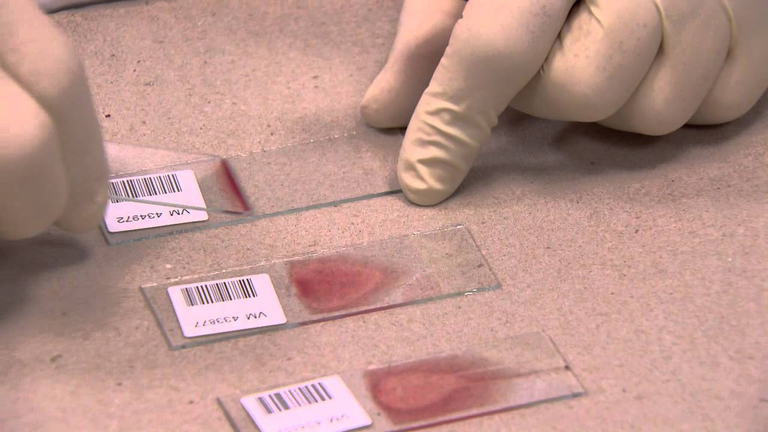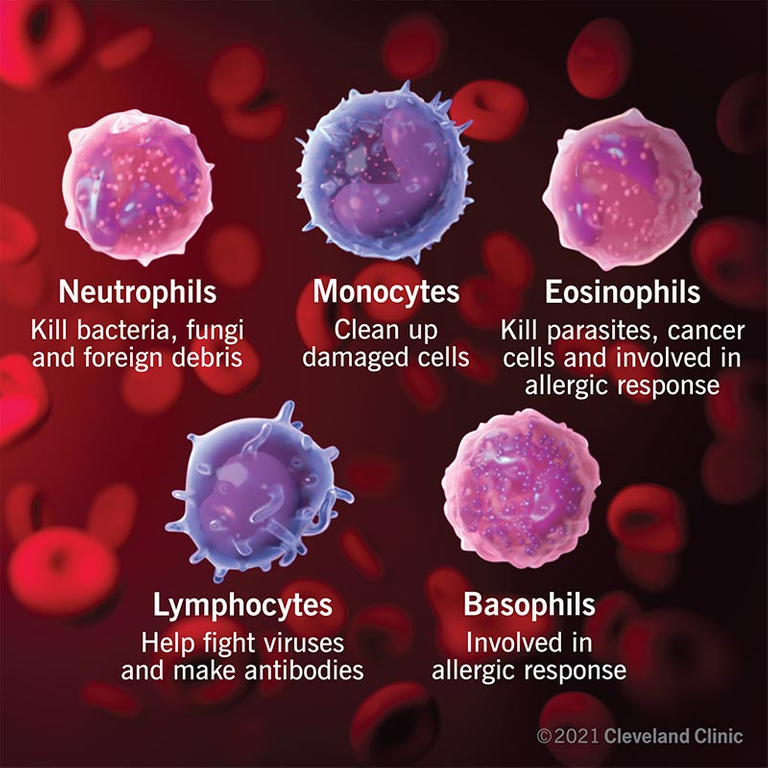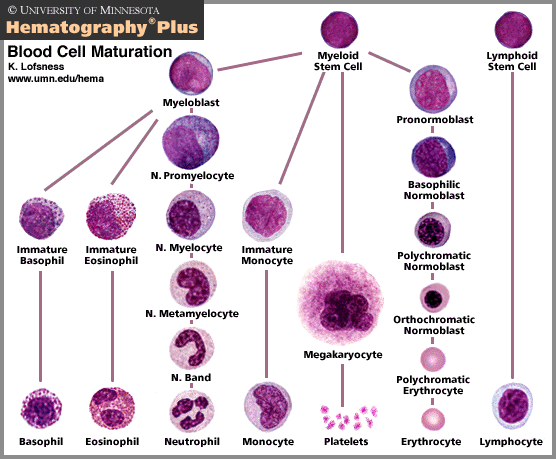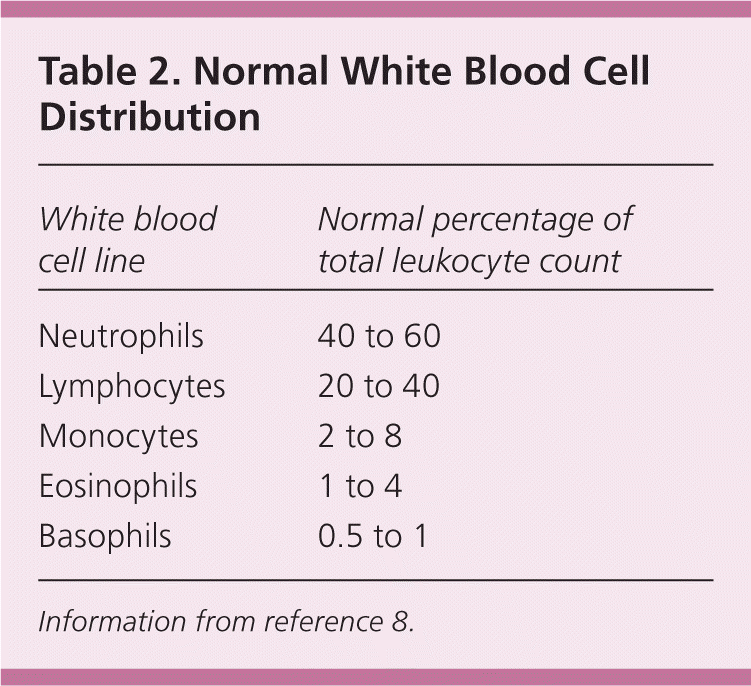Hello fellow hive community. I am a Clinical Lab Scientist at a children's hospital and often find that most people have little idea about all the fascinating things happening in our own bodies. Today I will be examining what happens in our cells, how they look like, and what they can tell us about possible illnesses.
If you or a loved one has ever had the misfortune of going to a hospital, many times the doctor will order a general CBC/Diff (Complete blood count/differential). Your doctor may recommend this panel as part of a routine examination to monitor your general health and to screen for a variety of disorders, such as anemia or leukemia. This is where I come in and apply a little dot of blood on a slide and smear it, as pictured below.

The CBC aspect is performed by an instrument and it will give you many results of which the following are the most important;
-Red blood cell count
-White blood cell count
-Hemoglobin (oxygen-carrying protein in red blood cells)
-Hematocrit (the proportion of red blood cells to fluid component, or plasma, in your blood)
-Platelet count (the clotting agent in your blood)
Red blood cells count, hemoglobin, and hematocrit are all related as they measure different aspects of your red blood cells. If one of these areas is lower than normal you may have anemia, which can cause fatigue and weakness. Anemia can be caused by a variety of factors, such as low Vitamin levels, low iron, blood loss, or an underlying issue. Conversely, if they are higher than normal it may indicate dehydration or an underlying health condition like heart disease.
A low white cell count (leukopenia) may indicate an autoimmune disorder that destroys white blood cells, caused by certain medications, or unfortunately, may be caused by certain types of cancers. A high WBC count may indicate infection or inflammation in most instances.
Once the instrument gives out all those values, I wait for the slide to dry and place it in a machine in order to apply a Romanowsky-type stain. This stains your red and white blood cells and allows us to be able to do a white cell count.

Source
I would then count 100 white blood cells and do the 'differential' part which determines the percentage of white cells you have in your body. Different percentages will help your doctor get a clearer picture of how to treat you.
Once the doctor receives the results from the differential he can continue his path to find a treatment.
White blood cells typically require some time to mature in your bone marrow. If they are seen in your differential as immature cells (blasts) it may indicate cancer is present.

Source
Thank you everyone, I hope to have shed some light on some of the clinical aspects of the laboratory. If you have any questions feel free to ask and I will answer to the best of my ability. Happy Wednesday.
~xSuiLx

I was taught basic white and red blood cells in high school, studying their characteristics
This brought some memories back with something new
Sweet :)
I always wondered what all those different numbers meant in my blood work every week. This explains what a lot of it meant.
I'm glad :) thank you for reading
And just like that, it's 2007 all over again and I'm in my nightmare Anatomy and Physiology II class. So many slides and cells!
It's incredible work that you do.
Thank you (y)
Congratulations @xsuilx! You have completed the following achievement on the Hive blockchain and have been rewarded with new badge(s):
Your next payout target is 100 HP.
The unit is Hive Power equivalent because post and comment rewards can be split into HP and HBD
You can view your badges on your board and compare yourself to others in the Ranking
If you no longer want to receive notifications, reply to this comment with the word
STOPTo support your work, I also upvoted your post!
Check out the last post from @hivebuzz:
Support the HiveBuzz project. Vote for our proposal!
Super interesting read. Doing great work there man